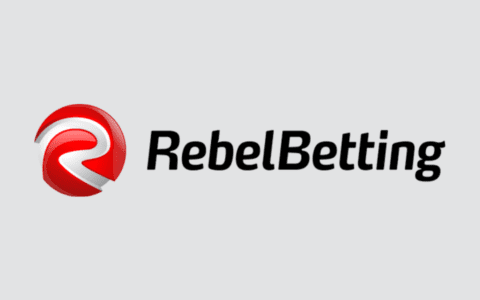What makes a professional gambler successful? What distinguishes them from the majority who struggle to win?
Strategy and methodology are crucial factors. Intelligence and analytical skills help enormously, too. However, beyond these, qualities such as mentality and character traits are equally vital.
It’s important to remember that gambling should primarily be approached as entertainment rather than a reliable way to make money, as very few manage to succeed in the long term. But if you’re looking to improve your overall approach to betting and develop safer habits, it’s wise to emulate the habits of profitable gamblers.
So here’s the top 10 traits of successful bettors.
Article Contents
1. Level-Headedness
Let’s face it: Celebrating big wins is part of the enjoyment of gambling.
However, if you find yourself boasting about wins while downplaying losses without consistent profitability, it’s time for a reality check. This behavior is a hallmark of unsuccessful bettors either masking their true performance or refusing to acknowledge it.
Be honest with yourself about how you’re performing.
If you want to be truly successful at gambling then you shouldn’t see winning as something that’s out of the ordinary, or losing as something to be ashamed of. Viewing wins and losses objectively is essential; both are inevitable in this game. What matters most is making informed decisions with every bet, regardless of the outcome.
Professional gamblers don’t rely on luck alone. For a deeper dive into the professional approach to betting, I recommend exploring strategies in the book “Sports Trading on Betfair.”
2. Staying Rigid
Even when your strategy hits a rough patch, maintaining discipline is key.
Variance ensures not every bet will win, regardless of how smart your betting strategy is. Riding out the rough patches and trusting in a proven long-term approach sets professional bettors apart from casual ones.
However, if doubts arise about your strategy’s effectiveness or you sense a mistake — stop and reassess. Check out my detailed post on sample sizes in betting analysis, highlighting the importance of analysing basing strategies over a large set of data.
3. Making Sense of Findings
Before jumping to conclusions, you should ask yourself: why would my approach to betting make a profit?
Pin down a logical reason why your idea has some sort of advantage over the Bookmaker or Betting Exchange. Do you know something others don’t? Have you found some sort of ‘gap’?
If you are compiling your own odds to identify bets, you want to ensure that your calculations make sense. You should scrutinise your findings and consider: are my odds and predictions truly more accurate than the market itself, or does it represent just one narrow viewpoint?
I once trialled a tipster service with target odds compiled by an “algorithm”. I identified that the target odds varied too much from the industry odds — so I requested past data. Eventually I proved that their bet selections were in fact completely and utterly useless. If you’re interested, you can read my summary of that dodgy tipster service.
The moral here is to always be critical of your findings, and other people’s. Assume the worst until you prove otherwise.
4. Using Tools To Analyse & Refine
Successful bettors create, refine and verify betting strategies by analysing past results or market behaviours. There’s more than one way of doing this.
One approach is to collect historical data and load it up in Excel. Provided you have the skills, you can simulate the past profitability of a strategy over a large set of results. Excel can also be used to compile your own estimates of odds for future sports events by assigning probabilities to outcomes. One mathematical method I suggest applying to your data is the Poisson Distribution, as explained by Pinnacle’s betting blog.
Betfair software applications or trading tools can also be used to further your analysis, and to trial out strategies. Some applications are capable of ‘mock’ betting on a live marketplace (e.g. Betfair), and collecting data in real-time with only minimal input from the user. Once you’re comfortable with your findings, it can be switched into real mode. One software suite I recommend trialling is BF Bot Manager.
5. Never Overstretching
Smart, professional bettors are conscious of their bankroll — particularly when starting out. If you bet beyond your means then your professional gambling career will be very short-lived.
So how can you avoid overstretching?
First and foremost, consider the odds you’re betting at. If your average odds are, let’s say 10.0, then each bet has an implied 10% win rate. At these odds it’s not unusual to encounter several straight losses. So if you’re betting high stakes with a limited bankroll, then you have to be prepared for the possibility that you could bust out. The solution is simple: cap your odds.
Staking plans, such as the Kelly Criterion, help to structure your betting. But all staking plans have their own advantages and disadvantages. To ride out bad streaks I recommend a simple approach of betting with around 1-5% of your bankroll. This is a reasonable guideline, especially if you’re betting at low odds where there’s less variance. Raise stakes as you begin to make profit.
In general, my advice is to avoid becoming too fixated on staking plans as this alone is no substitute for a profitable strategy. Furthermore, you can’t always stick to a staking plan if there isn’t sufficient liquidity for your selections — so they’re often just theoretical.
The bottom line is: you need to be betting on value. If your bets do not generate a profit on an flat-stake over a large/significant sample, then it’s not a winning strategy.
6. Focusing On The Odds
Professional bettors are able to detach their personal views and biases from sports events. Decisions are made based on the odds — whether betting through traditional bookmakers, betting exchanges, or crypto sportsbooks.
It’s never about “picking winners” or what you think is a good bet. Unsubstantiated views will not help you to succeed.
Over time, your advantage/disadvantage over the Bookmakers or Betting Exchange will eventually reveal itself in your results — there’s no escaping it. The key to coming out on top is capitalising on good prices (value bets) consistently.
For instance, you might select a loser at 10/1 odds but if the fair odds were 7/1 this was still a good bet to make. Equally, you could win at 5/1 odds but if the fair odds were 6/1 then it was still a bad bet. This is a very difficult mindset shift for casual bettors to make.
Learn about value in sports betting.
7. Predicting the Market Direction
Professional Betfair traders specialise in predicting whether odds will rise or fall. By correctly predicting the direction, traders can trade out at a guaranteed profit.
Trading on odds movements as opposed to forecasting the outcome using statistics is called ‘Cold Trading‘. Cold Traders don’t usually analyse the specifics of the sports event itself, but instead focus solely on market trends. Many profitable cold traders place particular emphasis on the:
- ‘Value’ in the odds
- Predicted increase/decrease in the odds (and thereby value)
- Rate of change in the odds
- Amount of money matched
- Market liquidity
- Weight of Money
Whether you’re aiming to become a sports trader or a fixed-odds bettor there’s a simple rule every sports bettor must know: if by the start of an event the odds have fallen a significant amount from where you backed, then what you have found is value. Consistently doing this is profitable in the long run.
For proof of this concept, I highly recommend reading my analysis on Closing Line Value (CLV).
8. Remaining Calm
You may feel a sense of nervousness when you make that initial ‘leap of faith’ and launch a new strategy. But if you’re forever placing bets with sweaty palms or over-excitement, then take a step back.
Make sure you’re confident in what you’re doing. Keep the bet sizes within your limits. Reduce your variance by betting on lower odds. Make sure you’ve been thorough in your research and that you’re satisfied with your selections. Refer back to historical data if necessary. Don’t rush into something that you’re unsure about.
If you think you’re in a rut, then try to address it early on. For more information, read my Q&A: Gambling Problems & Addiction.
9. Using Data Sources
Professional bettors typically search for their ‘edge’ by collecting data of their own, or paying for reliable data sources. This is particularly true for horse racing — where meetings are traditionally analysed by punters using data sources such as the Racing Post or other stats-based websites.
The use of statistics is very popular in horse racing because there are so many factors that impact a race. Some of the most-used data items are:
- Horse-specific: How the age, sex, fitness, and weight-over-distance ability compares with the other horses
- Form: For example, the Jockey/Trainer strike rates
- Race type: How horses are likely to perform on a specific race type based on their track record
- Weather conditions: How the horses typically perform under the current weather conditions.
Whatever the sport, smart bettors will consider influential factors, and assign a level of importance (“a weighting”) that this has on their bet selections.
But finding an edge is like anything else — those who have some type of advantage will succeed in a competitive market. Under this principle: the more research you put into your betting system, the more chance you have of finding the competitive advantage that others don’t have.
I’ve written a post on the limitations of football stats, which is relevant to every sport. It’s worth a read.
10. Never Chasing Losses
Successful gamblers accept that they can’t always win. They don’t feel that they’re fighting against the Bookmaker and that they need to ‘force’ a win. Professional gamblers look for a long-term ROI — not short-term gains to cancel out previous results.
If you’re chasing losses, then you’re lacking discipline and have to make a change.
I recommend focusing your attention on developing a high frequency, low risk strategy, as opposed to a high risk approach using large stakes on fewer events. You’ll experience less variance in doing so, and you’ll quickly unveil the true ROI of a strategy by collecting a greater number of data points.
Arbitrage Betting is a perfect example of a disciplined, high frequency strategy — and it’s risk-free. I recommend this as a starting point for those aspiring to become a professional bettor.
- Best Casinos to Visit on Your Global Travels | Luxury Gaming Worldwide - January 30, 2026
- Best Crypto Sportsbooks 2026 | Safest Bitcoin & USDT Betting Sites - January 30, 2026
- How Valuable Are Free Bets? Are They Worth It? - January 28, 2026





